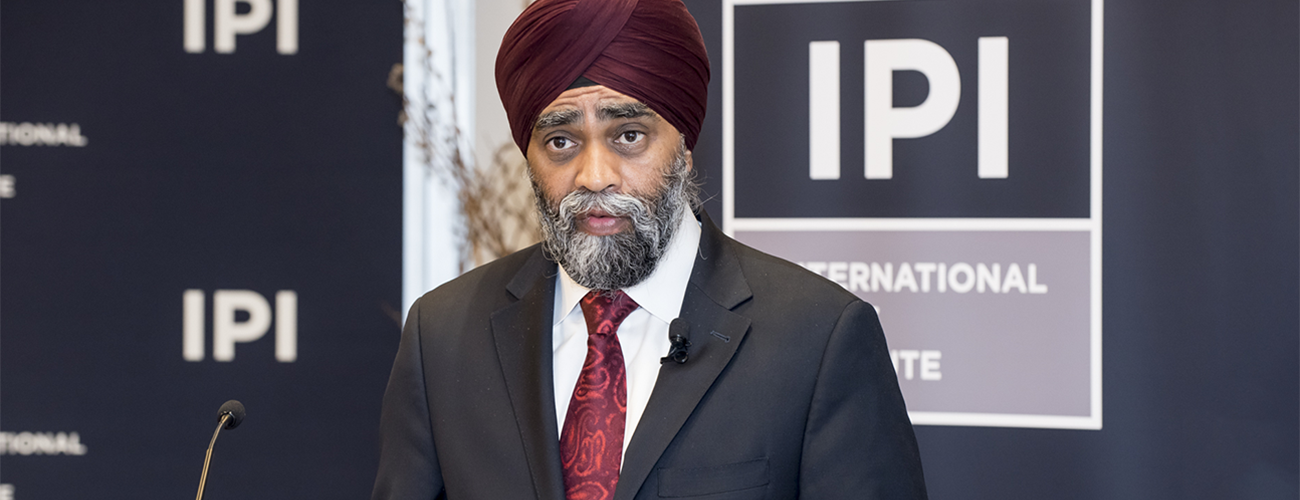Commemorating International Peacekeeping Day at IPI on May 24th, Harjit Singh Sajjan, Canada’s Minister of National Defence, said, “We must understand the reality of conflict today.”
The minister, a former peacekeeper in Afghanistan and Bosnia-Herzegovina, said, “It is Canada’s belief that addressing the root causes of conflict is a precondition of success.”
In recent years, defense ministerials led by the United States in 2015 and United Kingdom and 2016 were key forums for countries to make pledges to UN Peacekeeping. IPI’s Providing for Peacekeeping project maintains a database tracking such pledges.
Canada will host this year’s Peacekeeping Ministerial Meeting in Vancouver in November, and Mr. Sajjan said it would focus on “the three P’s”—pledging, planning and performance—but would also spotlight the need for partnerships.
“We need partnerships with governments, civil society and private actors, particularly in the areas where the United Nations faces gaps,” he said. “We will explore ways to protect vulnerable populations.”
He cited in particular the value of involving local business communities because they have a “knowledge base of their communities” and because they can increase security through job creation.
In that connection, he remembered that when he first went to Afghanistan, he was “naïve” about the value of employment and thought instead “it was all about ideology and the Taliban.”
“But it wasn’t,” he continued. “It was about money and power. If you offer a job to a youth in Afghanistan, he’ll take it. If you give them a gun and power, they’ll take that too, why wouldn’t they?” He said the Taliban enjoyed success because “they offered jobs.”
As for Canada’s own peace operations, Mr. Sajjan said he wanted to adopt what he called “the integrated approach.”
“This is essential,” he said. “We’re not just talking about sending troops, we’re talking about political engagement, capacity building, development, disease prevention, and we need to integrate all this into one because, as we know, conflict impacts populations, the disparity between the rich and the poor, and radical groups. We need to understand the environment that we’re getting into, making sure that we contribute properly so we have the impact on the ground.”
Adam Lupel, IPI Vice President, noted that the number of peacekeepers who had died in the line of duty had now passed 3,500, and shows no sign of decreasing, and that this year’s Peacekeeping Day was dedicated to their memory.
In answer to a question about how to protect peacekeepers at a time when fatalities among them are on the rise, Mr. Sajjan said, “certain troops might get targeted because they don’t have the right equipment.” He also noted, “some nations may not have the same level of training.”
Canada has established gender parity in the cabinet of Prime Minister Justin Trudeau, and Mr. Sajjan said that experience would inform the country’s attitude about peacekeeping. “This is not about tokenism,” he said. “We are not tapping into the entire population if we don’t do this, we are shooting ourselves in the foot if we don’t do this.”
The event was held as part of the IPI Speaker Series.
Atul Khare, Under-Secretary-General for Field Support, made introductory remarks.
IPI’s Adam Lupel moderated the conversation.








